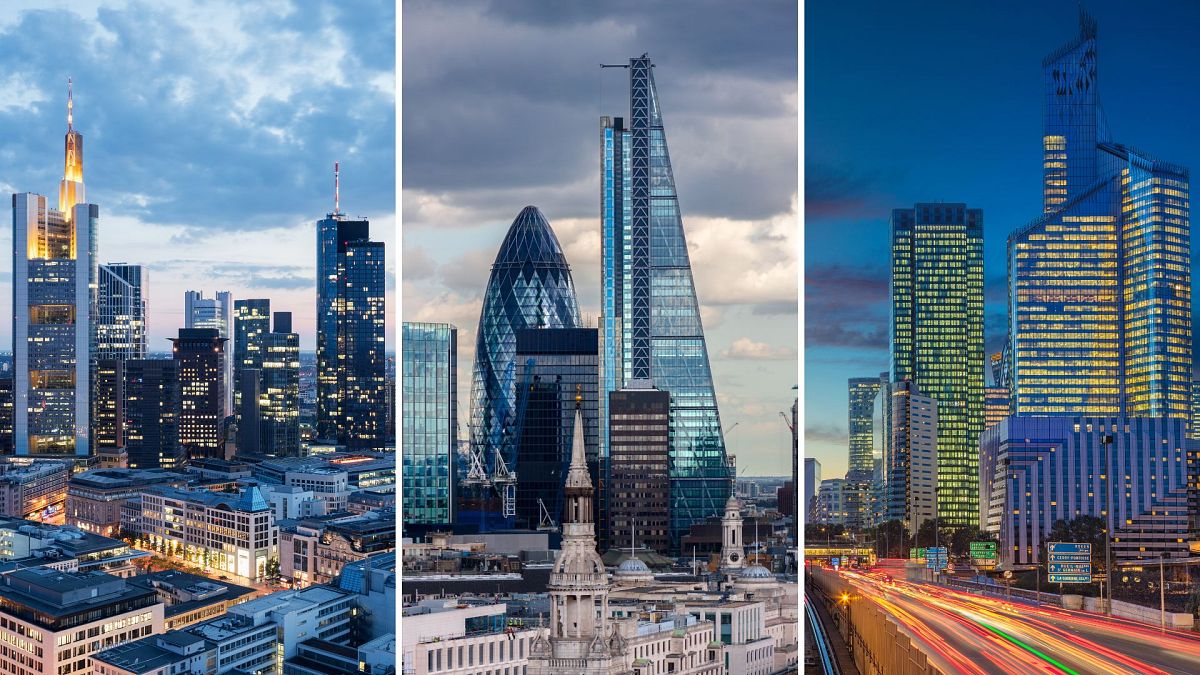Energy companies are sitting on top of the newly published Fortune 500 Europe list.
Introducing a new ranking of Europe’s ever-changing corporate landscape: Fortune 500 has just released its first-ever European edition, listing companies by how much money they rake in.
The ranking includes companies from 24 different countries in the region, including Russia.
The total revenue for the entire Fortune 500 Europe stands at $13.9 trillion (€13.02 trillion) – the equivalent of 3.5 times Germany’s GDP.
By comparison, the total revenue of the US Fortune 500 is $18.1 trillion and that of the Fortune Global 500 is $41 trillion.
Despite recent reports of its lagging economy, Germany is still Europe’s biggest powerhouse when it comes to lucrative companies: 80 German firms are on the list, with Volkswagen and Uniper making the top three.
Also of note is Russia’s Gazprom, which despite contending with a volley of Western sanctions due to Moscow’s war against Ukraine, still ranks among the 10 biggest players in Europe in eighth place.
As global tensions and wars have driven up energy prices and constrained supplies, major players in the sector have seen their revenues swell and as such have scooped some of the best positions on the list, including the number one spot: British energy giant Shell stands as Europe’s biggest business with an annual revenue of $381 million (€355.8 million) in 2022.
Other energy companies placing highly are France’s TotalEnergies (4), the UK’s BP (6) and Electricité de France rounding out the top 10 most valuable companies on the continent.
The 2023 Fortune 500 Europe top 10 list
- Shell (UK)
- Volkswagen (Germany)
- Uniper (Germany)
- TotalEnergies (France)
- Glencore (Switzerland)
- BP (UK)
- Stellantis (Netherlands)
- Gazprom (Russia)
- Mercedes-Benz Group (Germany)
- Electricité de France (France)
The banking and finance sector on the other hand, hampered by a tepid merger and acquisition market, features further down the list with Spain’s Banco Santander in 21st, France’s BNP Paribas in 27th, and the UK’s HSBC Holdings in 28th.
Despite appearing lower down the rankings, financial companies are still the most prevalent, with 84 featuring on the list.
Besides the energy and financial sector, firms from the building materials (30), food and beverage (27) and retail (25) sectors are also listed among the 500 biggest companies in Europe.
“European corporations have had to navigate several challenges in their latest fiscal year, including the Ukraine war and its ripple effects on energy prices, as well as economic volatility due to high inflation and interest rates,” said Scott DeCarlo, Fortune list editor.
“Despite headwinds, some industries benefited from a boost in consumer demand as they emerged from the COVID-19 pandemic, and sustainability remained top of mind for several of them,” he added. “With a diverse population come diverse challenges and so these European powerhouses are continuing to grow and adapt in an increasingly complex and unpredictable geopolitical and economic landscape.”
Which countries have the richest companies?
After Germany, the UK is the most-represented country in the Fortune 500 list, with 76 companies appearing in the rankings, accounting for more than $2 trillion, which is more than 15% of the list’s total revenue.
British household names appearing on the list include Tesco (34), BT Group (152), Diageo (188), Marks & Spencer (255), John Lewis Partnership (274) and BBC Group (436).
The UK and Germany are followed by France: 71 French companies make the list, while the Netherlands provides 37 and Switzerland 36.
The Fortune 500 Europe includes 35 female CEOs, or 7%, which is more than the 5.8% female representation on the Fortune Global 500, but less than 10.4% in the US Fortune 500.
The majority of the companies listed are well-established, being 108 year-old on average. The oldest company on the list is Anheuser-Busch InBev, whose roots in Germany date back to 1366.

